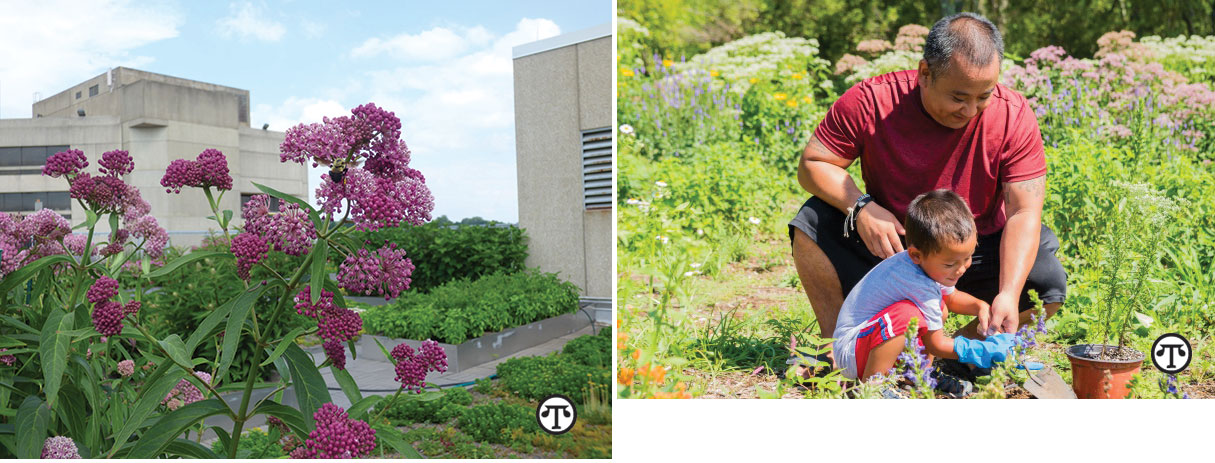
You and your family can work together to plant forage for pollinators.
(NAPSI)—It’s a common misconception that you need a large yard and advanced gardening skills to support honey bees by planting more forage. However, the reality is that anyone with enthusiasm and a potted plant can provide bees with the food and habitat they need. While individuals are crucial in protecting pollinators, many organizations are also finding solutions to help pollinators thrive in unexpected places.
Urban Gardens
Urban gardening is not a new concept; these green spaces are usually part of larger city parks and botanical gardens. However, as environmentally friendly practices become more popular with younger generations, organizations in urban centers have started creating their own pollinator havens in unconventional places.
One such organization is the University of the District of Columbia (UDC). After building a new native plant greenhouse at the school’s Bertie Backus Campus, the university’s College of Agriculture, Urban Sustainability and Environmental Sciences (CAUSES) went a step further by creating a rooftop garden, a Sustainable DC project. UDC worked with the D.C. Master Gardeners to create a space that will support pollinators and also serve as a beacon of education and outreach for those interested in urban gardening and habitat restoration.
Golf Courses
Golf courses around the nation are also doing their part to plant more forage for honey bees. Since 2010, Cantigny Golf in Wheaton, Illinois, has been restoring several acres of native prairie land, providing vital habitat for honey bees and other pollinators. Club superintendent Scott Witte started The Bee Barometer Project to illustrate how golf can be part of the solution to sustaining pollinator health. Witte now serves as an important link between golf courses and organizations raising awareness about bee health.
On Long Island, Bethpage State Park is also creating pollinator-attractant areas throughout its vast recreational space. The park has restored nearly two acres of pollinator habitat and planted scores of wildflowers, and it’s not stopping there. Agronomy director Andrew Wilson and his staff plan to create an entire corridor for pollinators by removing invasive species and restoring the areas’ native habitats.
Many of these organizations have joined Feed a Bee, a nationwide initiative sponsored by Bayer to support pollinator health. Feed a Bee’s current goal is to plant pollinator forage in all 50 states by the end of 2018. By partnering with organizations that provide habitat in unexpected places, the initiative’s message that anyone can support bees and other pollinators is loud and clear.
